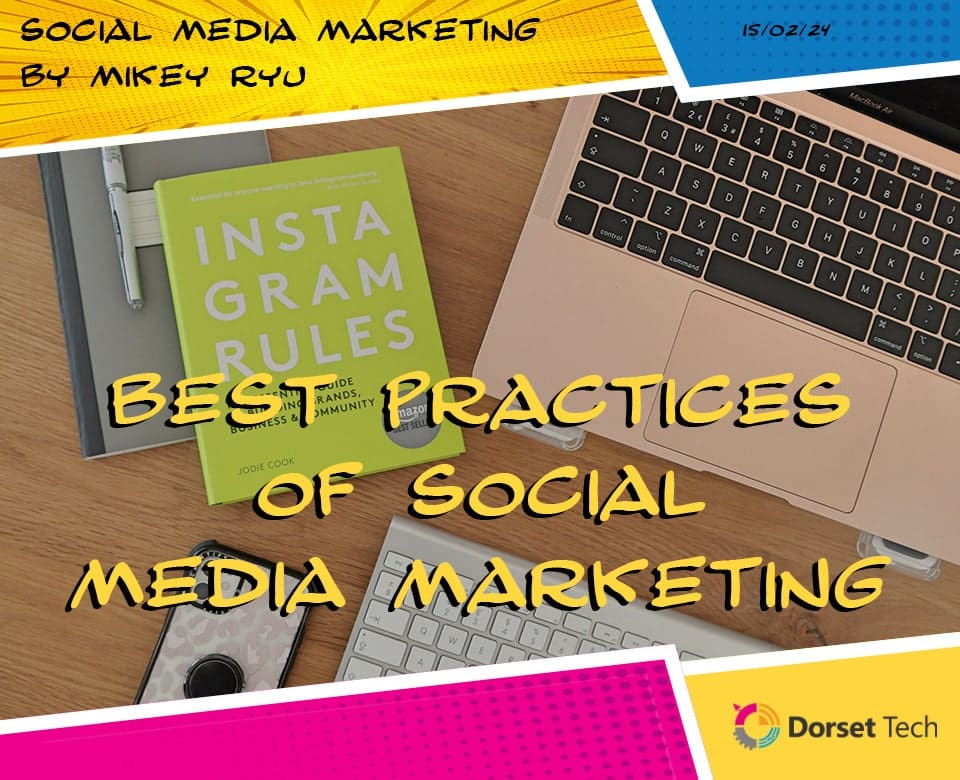
Creating a Comprehensive Social Media Marketing Plan
In the rapidly evolving realm of digital marketing, social media has emerged as a game-changer for businesses seeking to connect with their audience, build brand awareness, and drive meaningful engagement. However, navigating the intricacies of social media marketing requires a strategic approach and adherence to best practices. In this blog, we’ll uncover the key best practices that businesses should follow to maximise their impact and achieve success in their social media marketing efforts.
1. Define Clear Goals and Objectives:
Before diving into social media marketing, it’s essential to define clear and measurable goals that align with your overall business objectives. Whether it’s increasing brand awareness, driving website traffic, generating leads, or boosting sales, setting specific, achievable, and time-bound goals provides direction and helps track progress effectively. By clearly defining your goals, you can tailor your social media strategies to achieve desired outcomes and measure success accordingly.
2. Know Your Audience:
Understanding your target audience is fundamental to crafting tailored social media campaigns that resonate with your audience’s interests, preferences, and behaviours. Conduct thorough audience research to identify demographics, psychographics, and pain points. By gaining insights into your audience’s needs and motivations, you can create content that addresses their specific challenges and interests, leading to higher engagement and conversion rates.
3. Create Compelling Content:
Quality content lies at the heart of successful social media marketing. Strive to create content that is relevant, informative, entertaining, and visually appealing. Experiment with various formats, such as videos, images, infographics, and polls, to keep your audience engaged and interested. Maintain a consistent posting schedule to stay top-of-mind and maintain audience engagement. Remember to tailor your content to each platform’s unique characteristics and audience expectations.
4. Foster Engagement and Conversations:
Social media is inherently interactive, offering opportunities for meaningful engagement with your audience. Encourage conversations by asking questions, soliciting feedback, and responding promptly to comments and messages. Actively engage with your audience to build relationships, demonstrate authenticity, and foster a sense of community around your brand. By fostering two-way communication, you can strengthen customer loyalty and advocacy.
5. Be Authentic and Transparent:
Authenticity and transparency are essential for building trust and credibility on social media. Be genuine in your interactions, share behind-the-scenes glimpses of your business, and showcase real customer stories and testimonials. Transparency in communication, especially during crises or challenging situations, helps maintain credibility and loyalty among your audience. By being authentic and transparent, you can build stronger connections with your audience and foster brand loyalty.
6. Utilise Visual Storytelling:
Visual content tends to resonate more strongly with audiences than text alone. Incorporate visual storytelling elements such as images, videos, and graphics to convey your brand’s message effectively. Ensure that your visual content is high-quality, on-brand, and optimised for each social media platform’s specifications. Visual storytelling captures attention, evokes emotions, and enhances brand recall, leading to higher engagement and conversion rates.
7. Monitor and Analyse Performance:
Regularly monitor and analyse key metrics to evaluate the effectiveness of your social media efforts. Track metrics such as reach, engagement, click-through rates, conversions, and sentiment to gain insights into what content resonates with your audience and what strategies yield the best results. Use these insights to refine your approach, optimise content, and allocate resources effectively for maximum impact.
8. Stay Updated with Trends and Algorithm Changes:
Social media platforms are constantly evolving, with algorithm changes, new features, and emerging trends shaping user behaviour and content consumption patterns. Stay abreast of these developments by actively following industry news, participating in relevant communities, and adapting your strategies accordingly. Embrace innovation and experimentation to stay ahead of the curve and maintain a competitive edge in today’s dynamic business landscape.
In conclusion, mastering the art of social media marketing requires businesses to adhere to best practices and adopt a strategic approach. By defining clear goals, knowing your audience, creating compelling content, fostering engagement, being authentic and transparent, utilising visual storytelling, monitoring performance, and staying updated with trends, businesses can maximise their impact and achieve success in their social media marketing efforts. By embracing these best practices, businesses can strengthen their online presence, connect with their audience on a deeper level, and drive sustainable growth in the digital age.





















